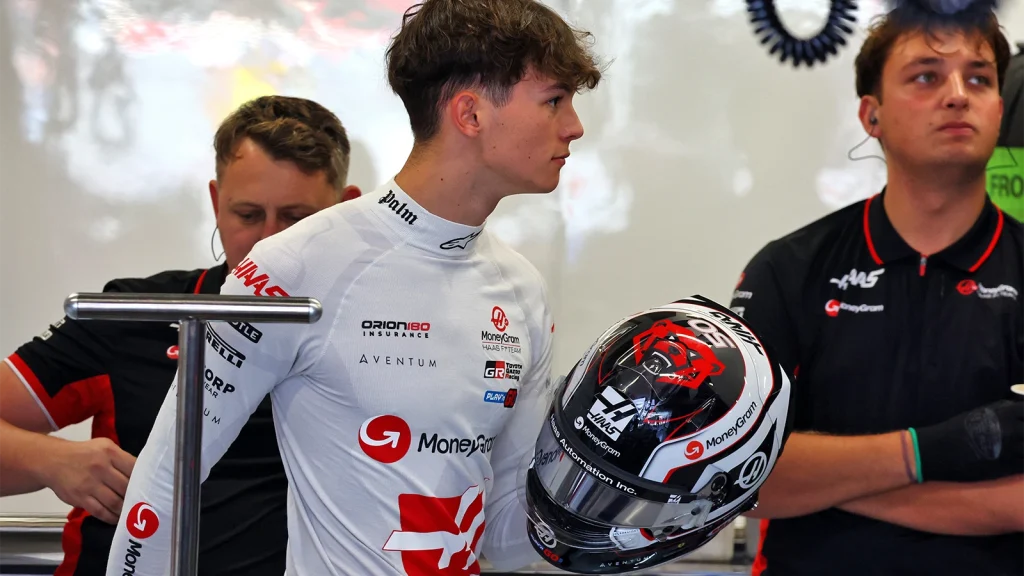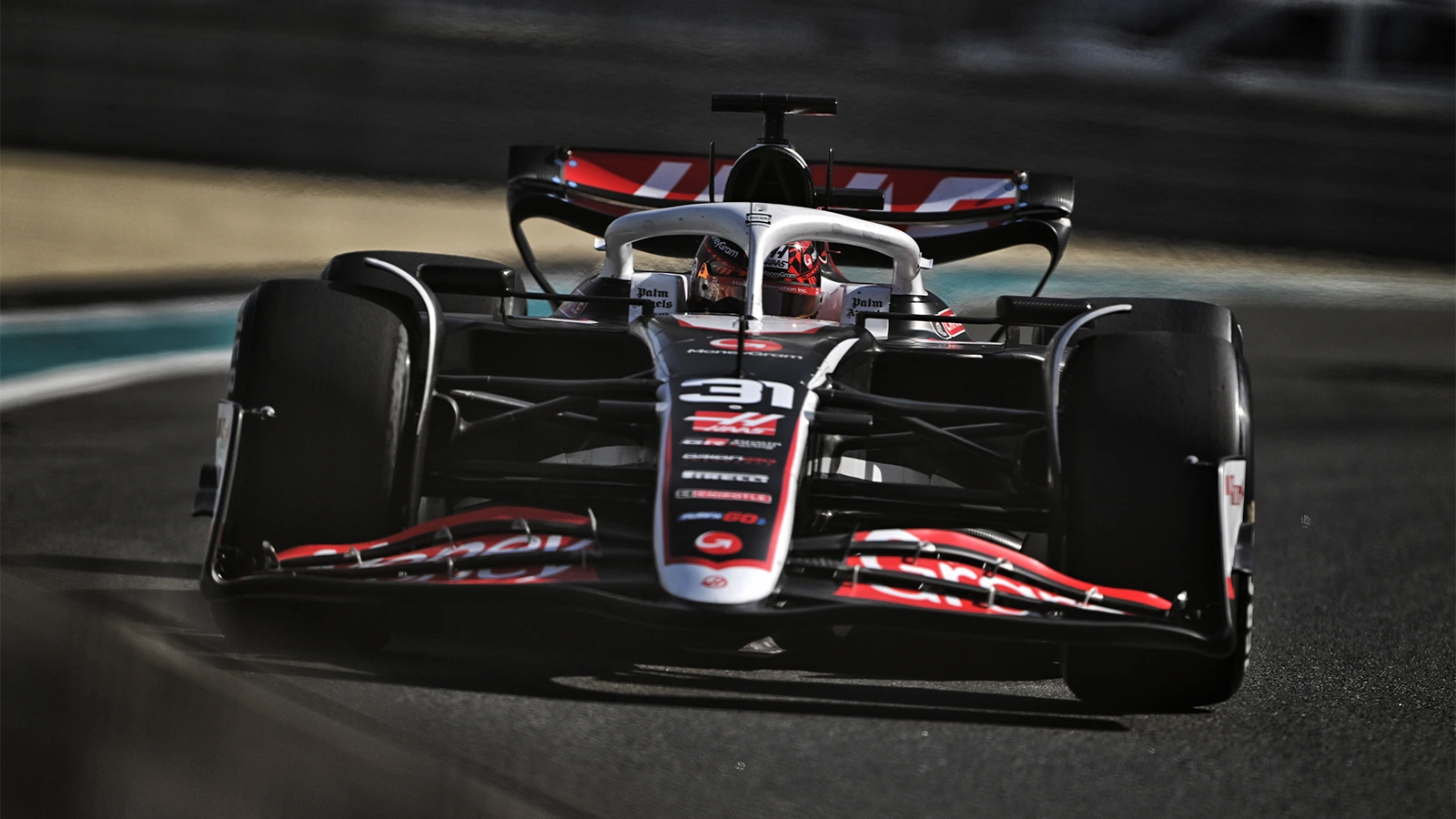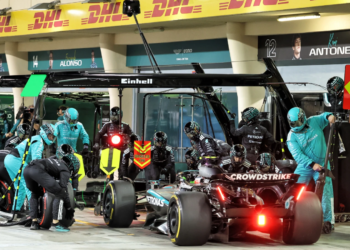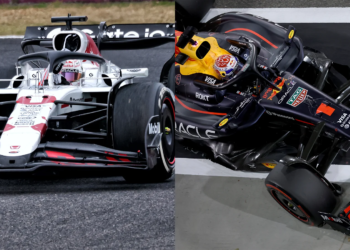Oliver Bearman and Esteban Ocon will participate in the Haas Formula 1 team’s first-ever TPC running this week at the Spanish Jerez circuit.
TPC (Testing of Previous Car) regulations permit F1 teams to carry out mileage in two-year-old machines.
Predominantly this is used to evaluate rookie drivers, but teams can use 1,000 kilometres of running with existing Grand Prix drivers.
Haas’ test at Jerez will be split across two days, using the 2023 VF-23 car.
Bearman will be first out on Wednesday, followed by Toyota-backed driver Ritomo Miyata in the afternoon.
Ocon will then go out first on Thursday with Miyata completing the test in the afternoon once again.
This will mark Ocon’s second outing with Haas after he made his debut with the team in the Abu Dhabi post-season test in the VF-24.
For Bearman, this marks the beginning of his full-time F1 career, after multiple FP1 appearances with Haas last year alongside two GP starts at Baku and Sao Paulo.
The TPC test will be Bearman and Ocon’s first as team-mates.
Miyata, meanwhile, contested the Formula 2 championship with Rodin Motorsport under Toyota Gazoo Racing colours in 2024 and his involvement in the TPC outing is part of Haas’ technical alliance with the Japanese marque.
Miyata’s single-seater career will continue in F2 this year with ART Grand Prix.

Haas’ TPC debut thanks to Toyota
As the smallest team on the grid, with approximately 300 employees, Haas has never had the opportunity to spend time and resources with a TPC programme.
That has all changed now thanks to a technical alliance with Toyota, which was announced in October 2024.
The Japanese marque has committed to providing staff and drivers to assist Haas for TPC running.
Speaking to the media when the alliance was announced, Haas Team Principal Ayao Komatsu explained why the squad hadn’t committed to TPC running in the past and the benefits it will gain from doing so with Toyota henceforth.
“TPC is very important in terms of training personnel,” Komatsu explained.
“We have just over 300 people, we have no contingency in personnel, so if let’s say one race engineer, one performance engineer decides to leave or has a programme not to attend a race we are really struggling, on the limit all the time, and in order to improve the organisation you cannot be that kind of survival stage as a baseline.
“We’ve got to build up our organisation, so through TPC we can start training our engineers, our mechanics, having backup people there.”
READ MORE – Kevin Magnussen Exclusive: Haas F1 ‘feels like family’









